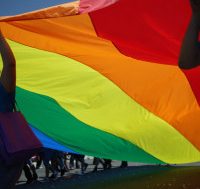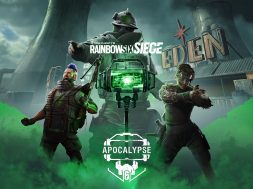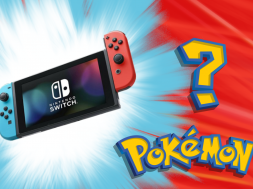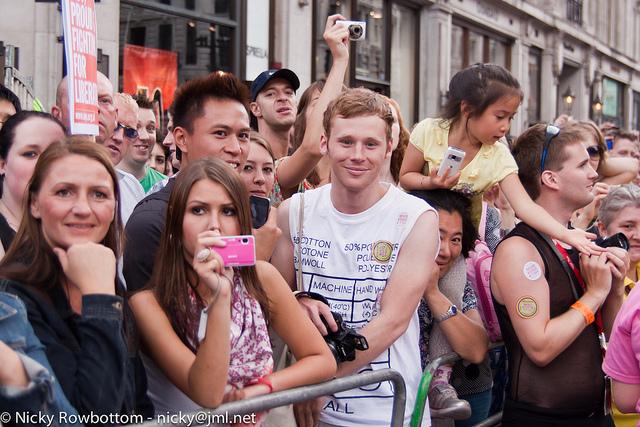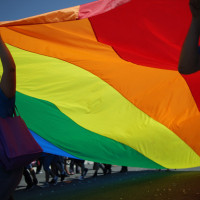
Opinion: Pride in London 2014, a Technological Liberation?
As I have remarked before, one of the chief boons in writing for the Arcade is that you can say just about anything. With the condition that the content can be tied in to geek culture, there really is not limit to your output. Therefore, I am entirely at my liberty to recount my experience of this year’s Pride parade in my home town of London. However, prior to marrying my leisurely excursions to my writerly obligations, I should give a general outline of the day’s events, if only to give the requisite context and thereby stave-off ambiguity.
This was my first Pride march. I’d known about them for a long while of course, but whenever they were going on I had, hitherto, found myself busy in some way. So, learning of the event the night before, I googled train times and joined the celebration on Oxford Street. Having travelled in haste, as is my penchant, I made my way along the pavement in a throng that was soon grid-locked. At that point I wondered whether the event was all it was cracked up to be, though part of that might be attributed to the rain. However, as the crowd dissipated I made my way along the street before spotting an old friend moving in the opposite direction. A winning combination of wily, wilful and slightly intoxicated, Kate, having introduced me to the group she was with, led the way in smuggling us all onto the tarmac.
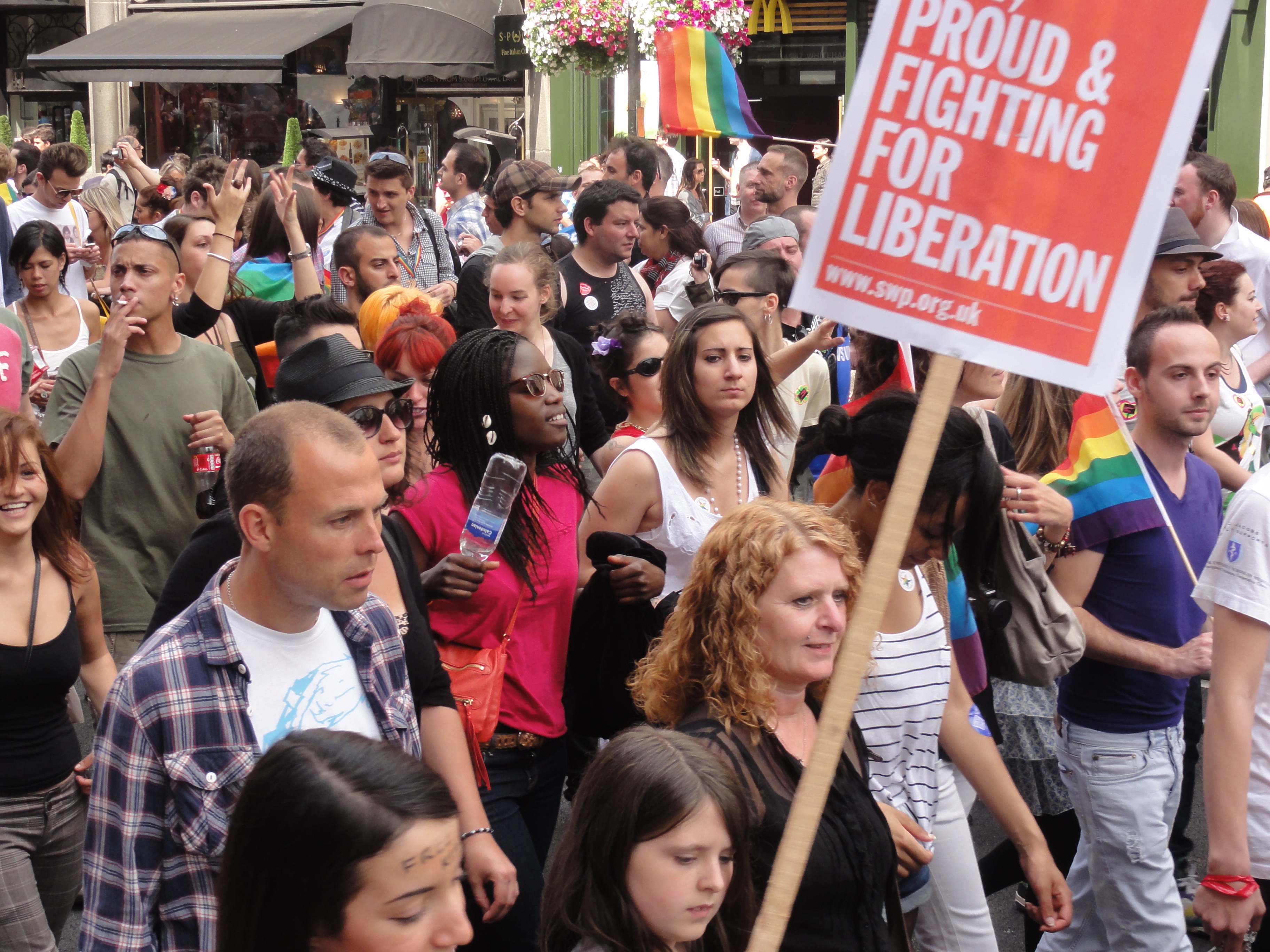
Having joined the procession, I was surrounded by people who were free to be themselves almost without censure, unashamed and unafraid dancing and cheering all the way. It made for fine spectacle, and I moseyed along drinking in the scenery, thumbing my facial hair and grinning like a moron – much as I did when my step-brother and his long-term boyfriend got hitched last year. There was a sense of unity manifest in the closeness of the air.
I had no definitive expectations of Pride, but being part of the parade I found surprisingly insightful. As we walked I found myself hesitant to partake in the frenetic goings-on around me. It was strange: I’m in favour of full civil equality (even have a rainbow flag to prove it!), so why this feeling in my gut? The realization was a chastening one. Simply put, my discomfort was not born of my being surrounded by LGBTs, but by being mistaken as one of the former myself. In an historically heteronormative world, non-conforming individuals are faced daily with the presumption that they are straight and cisgender. Consequently, as Dan Savage has shrewdly observed, you don’t simply come out, but continue doing so throughout your life. I, admittedly in microcosm, was experiencing the reverse of just that. I was mindful of how onlookers would regard me, and that suspicions could well be compounded depending on the way I was moving.
Fortunately, the all-embracing atmosphere meant that my (other) penchant for over-thinking wasn’t an encumbrance for long and I was soon swept up in the day’s joyful abandon. Also one of the procession buses began playing Start Me Up and I challenge anyone not to dance to that. In hindsight my moment of disquiet seems laughable. Still, however foolish it was, it made the whole point, or rather the whole motivation of Pride so visceral that I was instantly glad of it.
So having devoted the better part of 600 words to context, how do I yoke my observations of the day to the nerdological requirements of now? The answer is readily apparent.
Counting the number of cameras, phones and general handhelds as we made our way to Whitehall, where the parade terminated, was impossible. The event was covered not only by major and regional news networks but was personally documented by passers-by and participants. Moreover, the theme of this year’s parade was freedom, leading to the hashtag #freedomto (charmingly reminiscent of the famed treatise of Isiah Berlin – though I don’t know that organizers intended that synergy). Social media seldom gets a sustained and sober examination, probably owing to it being a comparatively recent phenomenon. Coverage of the subject is usually either hagiographic or fear mongering. Still, it has to be understood that simply having a Facebook page makes you a micro-blogger. People were (are) enabled en masse to bear witness and give voice. Technological innovation, it seems, is fast becoming a cornerstone of liberation, sexual and otherwise.
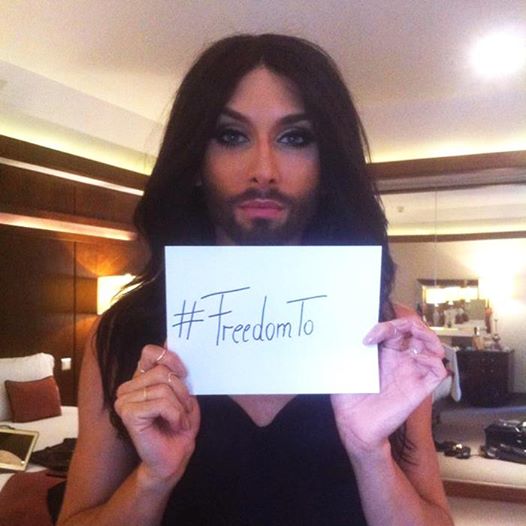 Yet, for all the progress Pride is seen to epitomise, the affirming impression cannot be swallowed indiscriminately, wholesale. Indeed wholesale is the word. At the end of the march there was a small group handing out leaflets for anther event, Monster Pride. House of Brag, the organizer, claims it wants to “take Pride back to its radical, militant, intersectional roots – but with fresh ideas as well”. I personally am not sure what to make of that. Militant seems an outdated term, and certainly it raises more questions than it answers. However, clarity aside, the leaflet does make one observation that raises critical questions about Pride. “Pride 2014 gets pots of cash from Barclays and Asda, yet grassroots & community groups still have to pay to parade alongside armed forces, cops & corporations.”
Yet, for all the progress Pride is seen to epitomise, the affirming impression cannot be swallowed indiscriminately, wholesale. Indeed wholesale is the word. At the end of the march there was a small group handing out leaflets for anther event, Monster Pride. House of Brag, the organizer, claims it wants to “take Pride back to its radical, militant, intersectional roots – but with fresh ideas as well”. I personally am not sure what to make of that. Militant seems an outdated term, and certainly it raises more questions than it answers. However, clarity aside, the leaflet does make one observation that raises critical questions about Pride. “Pride 2014 gets pots of cash from Barclays and Asda, yet grassroots & community groups still have to pay to parade alongside armed forces, cops & corporations.”
For the latter category you have to be naïve not to wonder at the extent to which the corporate presence was an exercise in branding and advertising. Indeed, the very companies whose logos and slogans made their way along the route, design, develop, manufacture and distribute the very devices that were used to capture the event, capturing those very logos and slogans.
You might respond by saying that Pride obviously does good work for which it needs money, what does it matter that fundraising has less that charitable motivations? Shortly: dialogue. Communication has been instrumental in changing LGBT lives, and while large companies have the funds to parade smaller organisations don’t, thereby excluding them from the platform that is Pride. If the folks at House of Brag are right then a cash surplus could lead to an impoverished discourse. Mistake me not: I don’t wish to detract from the effectiveness of Pride, nor the enjoyment that participants (including me) felt, but can’t help but wonder at what may be going unsaid.
Still, speaking with a friend the following day I was struck by a point that we are all aware of but frequently don’t recall; Pride addresses a fundamental imbalance, therefore the day we may be truly proud is when Pride itself is made surplus to requirement.
